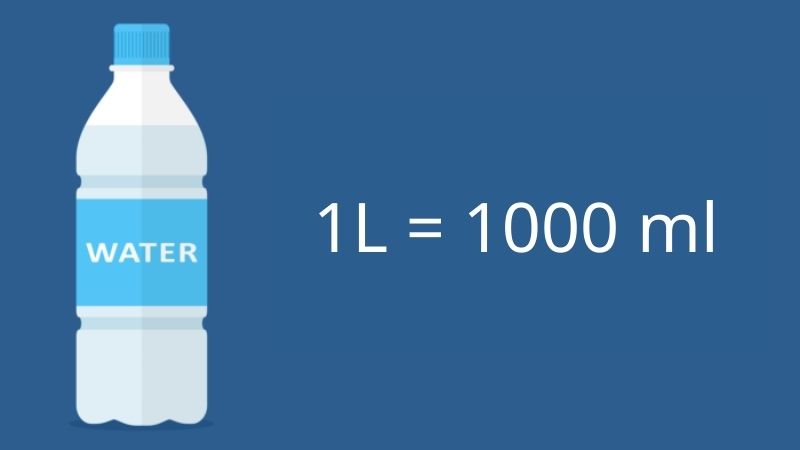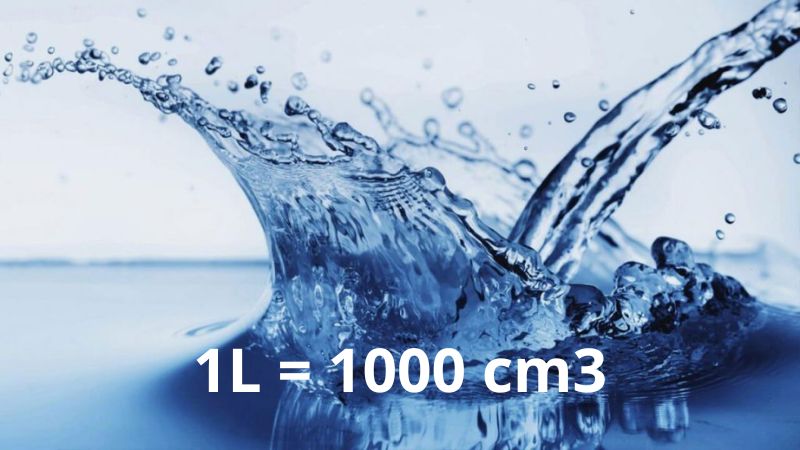Knowing how to convert units can make our lives easier and is applicable in many real-life situations. Therefore, it’s essential to understand how to convert liters to ml, cm3, cc, and kg. Here are some conversion methods for liters to other units:
1 How Many Milliliters in a Liter?
Liter, often abbreviated as L, is the unit of volume for liquids in the metric system. One liter is equivalent to a series of milliliters combined.
Milliliter, abbreviated as ml, is a unit of volume in the metric system. Although it is not an internationally recognized unit of measurement, it is still widely used. One milliliter is equal to one-thousandth of a liter. Thus, we can deduce:
1 Liter = 1000 Milliliters
 How many milliliters in a liter?
How many milliliters in a liter?
2 Converting Liters to Other Units
How Many Cubic Centimeters in a Liter?
Cubic centimeter, abbreviated as cm3, is a unit of volume used to measure the volume of a specific object. It is part of the international system of units.
1 Liter = 1000 Cubic Centimeters (equivalent to 0.001 cubic meters of water)
 How many cubic centimeters in a liter?
How many cubic centimeters in a liter?
How Many Cubic Centimeters in a Liter?
Cc, or cubic centimeter, is equivalent to centimeter^3 or cm3. In other words, 1 cc = 1 cm3. One cubic centimeter corresponds to the volume of a cubic object with dimensions of 1cm x 1cm x 1cm. The abbreviation cc is not an internationally recognized unit but rather a colloquial expression in certain contexts. Hence:
1 Liter = 1000 cc
 How many cc in a liter?
How many cc in a liter?
How Many Kilograms in a Liter?
Kilogram, abbreviated as kg, is the unit used to measure mass and is one of the fundamental units in the international system of units. To convert liters to kilograms, we rely on the specific gravity of each substance. Thus, the conversion will differ depending on the type of liquid:
- 1 liter of water = 1 kilogram
- 1 liter of gasoline = 0.7 kilograms
- 1 liter of cooking oil = 0.8 kilograms
- 1 liter of diesel = 0.79 kilograms
 How many kilograms in a liter?
How many kilograms in a liter?
So, we’ve just covered how to convert liters to milliliters, cubic centimeters, cc, and kilograms. Hopefully, this information will help you efficiently apply these conversions in your daily life. Feel free to explore our website for more useful tips and tricks!
































